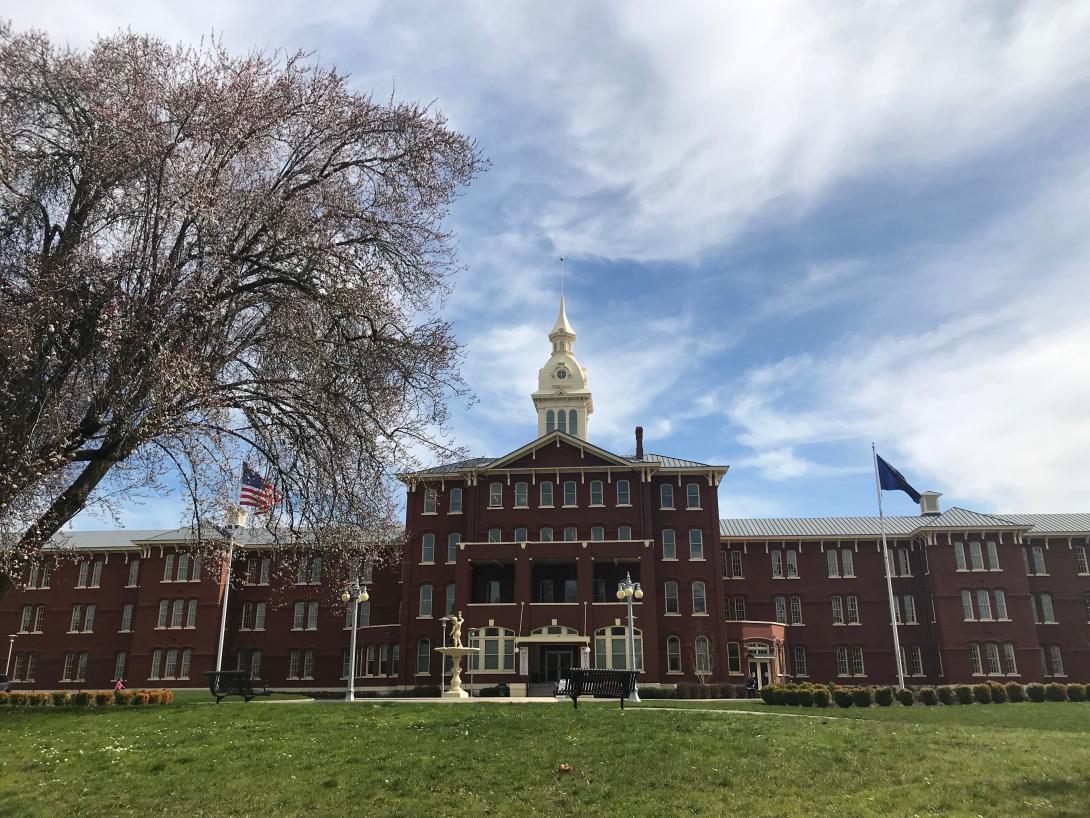
The Oregon State Hospital continues to grapple with delays in admitting patients, even as the state-run mental health hospital stays compliant with a court order requiring timely admission of defendants who need treatment before they can stand trial in criminal cases.
Inmates in county jails aren’t the only ones waiting for a bed at the hospital. There is another group straining the hospital: patients outside the criminal justice system who are deemed by a court to need state hospital treatment. Dozens of patients with civil commitments are waiting in community hospitals throughout Oregon to enter the state-run facility.
That was part of the message state lawmakers heard from Oregon Health Authority and Oregon State Hospital administrators on Monday in a presentation to the House Interim Subcommittee on Behavioral Health.
The hospital came under intense scrutiny in late 2018 after failing to admit patients with pending criminal charges in a timely manner who are languishing in county jails and need mental health services so they can prepare for their case. Those patients, called “aid-and-assist” cases, weren’t entering the hospital within the seven days mandated by a judge to ensure they were stabilized before trial. The delays ran afoul of a prior federal court order and the hospital was ordered to step up and follow the order. The hospital has been compliant since July, according to Steve Allen, behavioral health director of the Oregon Health Authority.
The Oregon State Hospital had an average daily population of 272.7 aid-and-assist patients in December 2019, down from a high of 275.8 in July. The state hospital was designed to help people in three main circumstances: aid-and-assist patients awaiting trial, people found guilty except for insanity in criminal cases, and patients who enter through civil commitments instead of the criminal justice system. The growing aid-and-assist population and pressure to comply has squeezed other parts of the hospital’s services.
Allen urged lawmakers to think about the issue beyond the number of beds at the hospital and to seek ways to get patients to community-based mental health providers. The flow and movement of patients to different types of services is key, he said, adding that Oregon lacks the capacity it needs for community programs.
“The answer is not simply building more psychiatric bed capacity because the answer to all this is in the flow,” he said.
Dolores Matteucci, superintendent of the Oregon State Hospital, said 59 civil commitment patients as of Friday were waiting in an Oregon community hospital for entry into the state hospital.
The hospital normally admits about 25 civil commitments a month. In December, just nine civil commitment patients entered the hospital. So far this month, four patients have entered the hospital.
“We are at such critical mass in terms of being able to admit people,” Allen said.
The backlog comes as the hospital is taking resources away from the civil commitment patient population and putting it into the aid-and-assist population. The hospital has experienced an overall 42-bed drop in hospital capacity for civil commitments.
In November 2018, a 26-bed unit for civil commitment patients was turned into a unit for aid-and-assist patients at the hospital’s main Salem campus. In July 2019, another 26-bed unit for civil commitments was converted to use for aid-and-assist patients.
Meanwhile, fewer beds have opened up for civil commitments. The facility opened 10 additional hospital-level beds for civil commitments in July 2019.
The hospital also wants to open up two vacant, 25-bed units at the Junction City campus and use them for patients who have been judged guilty except for insanity in the criminal court system. That will free up space at the Salem campus, but those beds, too, are expected to go toward the aid-and-assist population.
You can reach Ben Botkin at [email protected] or via Twitter @BenBotkin1.